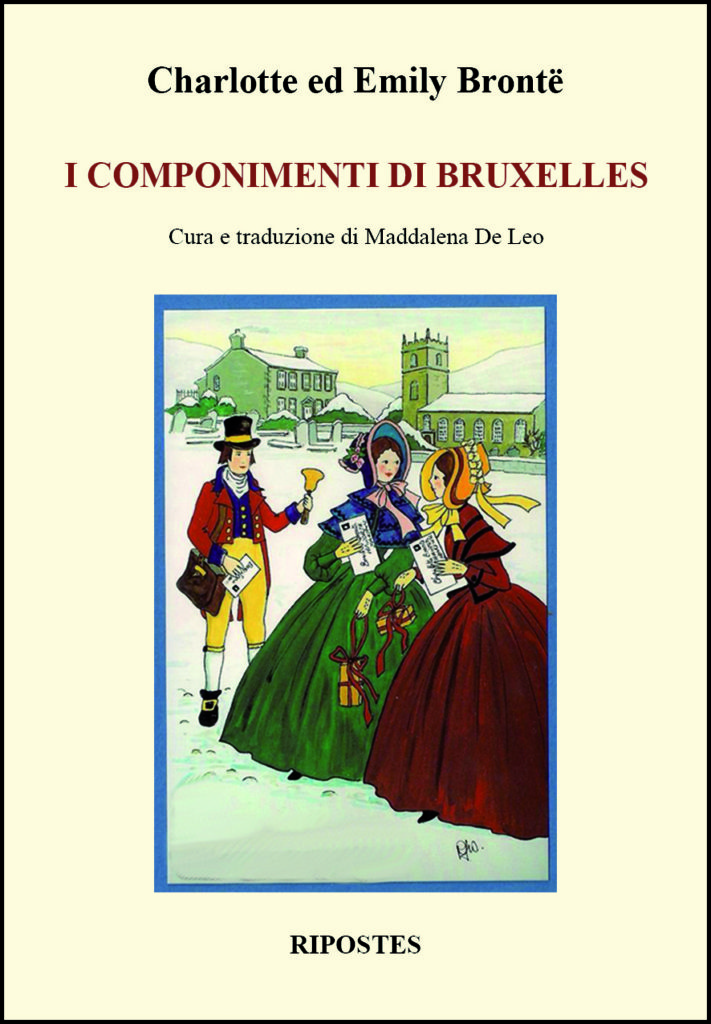
In December “I componimenti di Bruxelles” will be published by Ripostes Edition. In this book I’ve collected and translated in Italian some very little-known French compositions by Charlotte Brontë, written during her stay as a student -with her sister Emily- at the Pensionnat in Brussels, in 1842. I had already translated and published Emily’s compositions in 2002 and now, by working on Charlotte’s unknown writings, my intention is to complete what at the time was an innovative work. Unlike Emily, Charlotte went back to Belgium in 1843, became an English teacher, and took more French lessons from Héger, writing for him new compositions.
The “dévoirs” are twenty-nine in total – twenty written by Charlotte and nine by Emily-, and they’re all preceded by an explicative introduction. As for Charlotte’s compositions, my translation was based on Sue Lonoff ‘s work, who was the first to translate them in English. The topics are varied, from British history to Greek history, and the Bible. Here is an excerpt of my Italian translation, from “Il Bruco”:
“..Consideriamo la vita dell’uomo. Si reputa intelligente, si illude di essere nobile. Si vanta dei risultati della propria perseveranza, della sua facoltà creativa, di invenzioni e scoperte. Ma se potesse misurare le cose che sa contrapponendole a quelle di cui è ignorante, se potesse paragonare ciò che per lui è possibile con quanto gli è assolutamente impossibile, solo allora scoprirebbe che vantarsi delle invenzioni e delle proprie conoscenze è (secondo un uomo notevole per talento e umiltà) come se un bambino che ha raccolto conchiglie ai bordi dell’oceano pensasse di essersi impossessato di tutti i suoi tesori.Ma se l’uomo non è grande, è buono; c’è fede e misericordia sulla terra. Si, ogni uomo ha i suoi momenti di bontà ma la sua vita giornaliera è quella di un bruco. Qui sotto egli striscia, le preoccupazioni del mondo lo opprimono. Le esigenze del corpo ne disturbano le aspirazioni dell’animo. La vita di un uomo virtuoso non è che una lotta continua della natura contro la religione.”
My hope is that for Italy, this new and complete work would be an addition to our knowledge of these surprising English writers, who have always been the subject of my literary studies.
Maddalena De Leo




